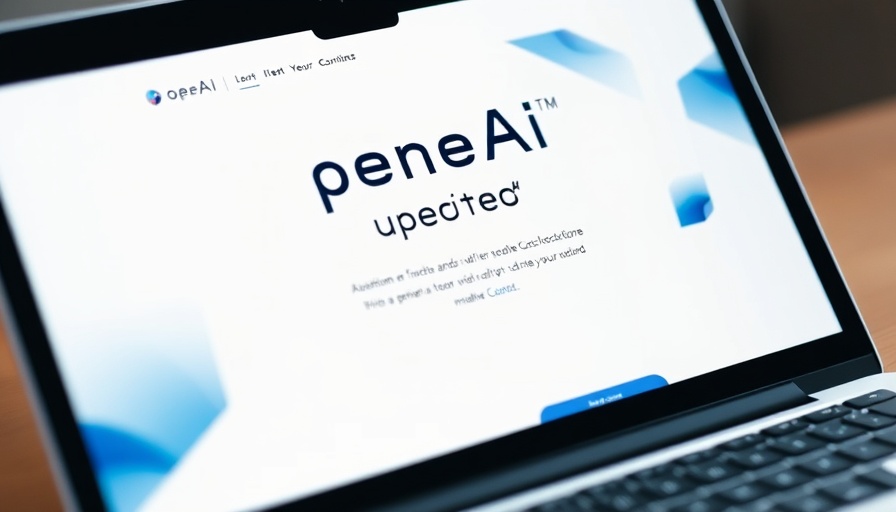
The Stargate Project: A Boon with Hidden Costs
The arrival of the Stargate project in Abilene, Texas, heralds a monumental shift towards artificial intelligence, yet it is shadowed by significant environmental concerns. Bringing together major players like OpenAI, Oracle, and SoftBank, this $500 billion initiative is set to transform the local economy. However, at what cost?
Economic Promises vs. Reality
As the first data center of the Stargate initiative opens its doors, local authorities buzz with optimism over job opportunities. Mayor Weldon Hurt believes this development could rejuvenate Abilene's economy. “It will impact the rest of the economy—our restaurants, our homebuilders—with that many new people coming in and taking these jobs,” he claims. But here's the catch: although the project currently employs around 1,500 people for construction, it only guarantees 357 permanent positions once completed. The chasm between job growth expectations and reality raises significant concerns.
The Environmental Toll
Compounding local residents' worries is the associated $500 million natural gas plant, set to power the data center. This facility is allowed to emit 1.6 million tons of greenhouse gases and hazardous pollutants annually, posing a severe threat to the air quality and public health in nearby neighborhoods. A recent EPA report indicates that living near emissions sources can lead to increased asthma rates and respiratory illnesses. Given the proximity of homes—just half a mile away—the potential health impacts are alarming.
Long-Term Consequences
Abilene’s decision to favor progress over health raises ethical questions about community welfare versus economic gain. Critics argue that the outlined economic benefits do not align with the health risks posed by environmental pollution. While the allure of improved job markets cannot be denied, residents must not overlook the long legacy of harm that accompanies such industrial ventures.
Addressing Misconceptions
Many community members may be tempted to view the Stargate project as an unqualified success due to its highlighted economic benefits. However, such a perception glosses over the environmental trade-offs that carry profound implications for health and well-being. It is vital to promote a more informed dialogue regarding the balance between industrial development and public health. Ignoring these realities may lead to disillusionment when the promised economic benefits fail to materialize fully.
Moving Towards Sustainability
The pivotal question remains: can Abilene find a path toward sustainable energy sources that safeguard community health while still reaping the economic benefits of projects like Stargate? The urgency for wider adoption of greener technologies and comprehensive public health studies cannot be overstated. As policymakers and developers move forward with this project, the voices of community members must be amplified to prioritize health, advocating for cleaner energy alternatives that can support sustainable growth.
Conclusion: Take Action
As Abilene faces profound decisions regarding its future with the Stargate initiative, it's crucial for residents to engage proactively in discussions about their health and environment. Local advocacy for cleaner energy solutions and rigorous health studies can be the first steps in ensuring a prosperous yet sustainable future. Residents, local leaders, and stakeholders must come together to advocate for the health of the community above the allure of transient economic promises.
 Add Row
Add Row  Add
Add 




Write A Comment